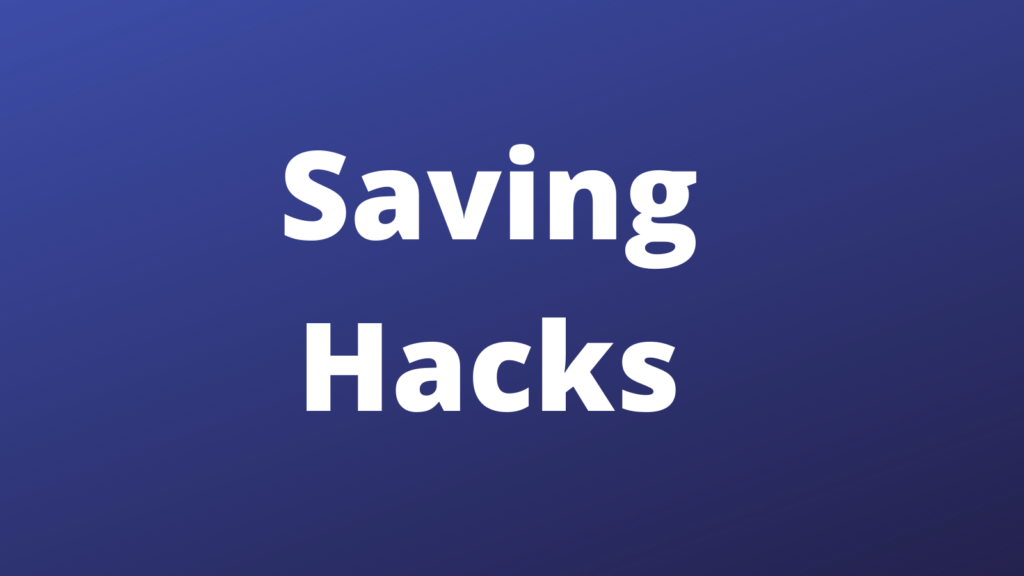How To Get A Month Ahead Of Bills
I can’t wait ’til payday. That thought is a bad sign, especially if it’s one you have frequently. It usually means you’re broke. To be broke before payday tends to leave us with a feeling of hopelessness—and with reason. If you’re broke, you have no financial recourse for challenging anything unexpected life puts in your way. You don’t have control of day-to-day life, much less your future. But there’s hope! You can end the dilemma of being habitually broke before payday. There’s a way to get a month ahead of your bills. The overwhelming concern about making it to your next paycheck can become a thing of the past.
If you need to know how to get a month ahead of bills read on.
Get a month ahead of your bills: Practice economy and save. Stay focused: Take advantage of a budget and spending journal. Be creative.
One Month Ahead Meaning
Being one month ahead of your bills is paying your bills for July with June’s paycheck. You would pay August’s bills with July’s paycheck and so on.
The advantage of paying your bills this way is you have one month of money in reserve.
One Month Ahead Challenge
This, is a savings challenge for you. But you can get one month ahead of your bills. Read my article about the one-month-ahead savings challenge.
Once you’re a month ahead of your bills—even before you reach that goal—you’ll have the satisfaction of some financial control. You’ll feel more empowered to manage the routines and the unexpected circumstances that come from just living.
Let’s explore moving toward that point: In some of my posts, I talk about being a young man who is frequently broke before payday. That was problematic, but it wasn’t the root of the problem… The first step in solving a problem is to identify it.
Identify The Problem
If you’re constantly broke, you know you have a financial problem, but what’s the root? Is it an earning problem? Or a spending problem?
If you are looking for how to get one month ahead of bills using savings hacks. Read my article “Get one month ahead of bills using savings hacks“.
Earning Problem
Do you make enough money to maintain your lifestyle? I know that’s a volatile question because many factors change what we can afford. Loss of a job, or even a cut in hours, are major. So is an income that doesn’t keep up with inflation. No matter why, many people find themselves needing more money just to stay even, and most of us need more if we want to get ahead…
There’s A Solution To That.
You could get a part-time job to help you get a month ahead on bills. An alternative would be to start a side gig; use “side gigs” to do a Google search. You’ll be amazed and how many possibilities come up. Just to give you an idea, I’ll list a few. (Working a side gig can be very profitable.)
5 Easy To Start Side Gigs
There are hundreds of ways to make money. You can increase your income beyond the point of just making do. You want to be able to save some of it; that means we need to eliminate any spending problems.
Spending Problem
Any of us could have a spending problem if we don’t make enough money to cover our needs. It could also be that we just want more than our income can support. To a great extent, those are earning problems and are addressed above. That said, even if we have an adequate income, many of us have an I want it now attitude and use credit too freely; we overextend ourselves by paying to use someone else’s money. One other possibility—some of us are just sloppy regarding finances; we don’t know how much we can spend or when it’s available for spending. Start by figuring out how much you need.
How To Get A Month Ahead Of Bills
To get ahead of your bills, you need to know how much you need to live. It’s easy to figure. Add up all your expenditures over a month, that’s your answer. Everything you spend money on needs to be included. Unfortunately, a lot of us have no idea how much that is. Keeping a spending journal can change that.
Knowing how to get a month ahead of bills is a very methodical process.
Spending Journal
Most people can’t tell you exactly how much they spent on any one item. If they can’t do that, how likely is it that at the end of the month, they can give an itemized account as to what and to what extent they applied their paychecks? (They can’t.) Use a spending journal to log all expenditures. You’ll know what happens to your income. You should also begin to see spending patterns that could be considered wasteful and need to be modified. That information will help you develop a budget. (You’ll design your budget to provide the means for saving the money that will put you a month ahead of your bills.)
Budget
A budget has two functions. The first is to ensure you can pay for living. It’s a set of monetary allotments that fund categories of specific expenditures. Groceries, fuel, rent/mortgage, and entertainment are examples, and any credit or loan payments, too; everything you spend money on should be assigned a category. (Note: Most of us don’t receive our income as one lump sum, so the funding needs to be divvied between paychecks.)
The second function of a budget is to direct money to your savings: Various savings goals should have their categories. That includes your goal of getting a month ahead of your bills.
Putting one together might seem daunting if you haven’t been living on a budget. If you’d like to know how to do it, I have a post that tells exactly how to make a budget. Check it out; you’ll find it helpful. If you already have a budget, include this goal as a new category.
If you have a budget, does it work? If you think your budget isn’t working, read my article “Does your budget work“.
Timing Your Goal
You need to save $1000 to be one month ahead of your bills. If you decided to save $20 a week, you’ll reach your goal in just under a year. That doesn’t seem very long, does it? Do you, however, see an issue here? We have life to live while we’re doing this saving. Living takes money (hence the budget); for some of us $20 a week is a significant amount. What if saving $15 a week, or even $10, would be a better fit? At $15 a week, you’ll reach your goal in just over 15 months. At $10, it will take close to 2 years…
That doesn’t seem very long, does it? Do you, however, see an issue here? We have life to live while we’re doing this saving. Living takes money (hence the budget); for some of us $20 a week is a significant amount. What if saving $15 a week, or even $10, would be a better fit? At $15 a week, you’ll reach your goal in just over 15 months. At $10, it will take close to 2 years…
GO FOR IT, ANY WAY! If you don’t, the same amount of time will pass, and you’ll still be wishing you could get ahead.
Saving Hack
There is a “secret” many people who are accustomed to living on a budget used to enhance the likelihood of meeting their savings goals. Do you remember I said a budget is a set of monetary allotments? It’s best to keep your spending in any category within the limit of its allotment, but…if it’s a savings category, that doesn’t hold. If you find ways to save a little here and there, adding more than the amount you’ve designated for savings is okay.
And, where do you find those small savings? You “find” them by cutting corners in spending: shopping secondhand stores, taking advantage of sales, coupons, etc. Do what you can to reduce the amount of money you spend. Combined, small savings can help you to more quickly reach your goal of getting a month ahead of your bills.
“Finding” money is something you can do to augment your saving. There are also things you can do to avoid sabotaging your effort. I’ve included a short list of things that can help you stay focused and moving toward your goal of getting one month ahead of your bills.
The following items will help you get a month ahead of bills
Avoid temptation: Temptation is often based on habit (as in stopping to get coffee on your way to work instead of waiting to get the cup you’re owed at work because you contribute to the coffee fund.) Embrace thoughts about how great it will be to be ahead of your bills, on how you can put that $2 (or more) you spend at the coffee shop towards the cause. (Also, it might help to avoid driving by your favorite coffee shop on your way to work.)
Stay away from wish lists: Be content with what you have. Notice I didn’t say be satisfied, but be content. After you have (and maintain) a buffer against the chance of not being able to pay your bills, you’ll be in a position to address other issues that may require financial planning.
Avoid Boredom: If you’re bored, you’ll look for something to do. That something will (probably) be unplanned and costly. Don’t risk compromising your goal of getting a month ahead of your bills.
Yeah. Sometimes, achieving goals requires a little bit of stoicism, so… there are inexpensive things you can do.
Do it Cheap
Too often, there’s no alternative offered after someone says, “Don’t do that!” or “Do something different.” Don’t you hate that? I sure do. So, I want to include some things that can be done instead of focusing on the negative. After you see these, I’m sure you think of more.
Reading: Digital or hard copy, a lot of reading material is available. Make use of your library.
Puzzles: How about a bit of a challenge? Some people even turn puzzles into wall art.
Movies: YouTube, Amazon Prime, Netflix, and others offer movies and TV series. All selections may not be free, but it generally works out to be less expensive than going to a movie theater. And some of these services offer sharing programs. (If you share the availability, could your friends/family share the cost?)
Hikes/Walks: Good exercise, and it costs next to nothing. Go with a pet or friend.
Biking: Another friend-friendly activity—good exercise. Some people even give up driving to work and elsewhere. You can save money on fuel, upkeep, and insurance.
Cook with Family or Friends: Prep, eat and clean up together. Use food to nurture relationships. (And, it will be less expensive than eating the same meal out.
Volunteer Work: You are needed. Help feed the homeless. Volunteer at a school or the park department. You won’t have a problem finding an organization that can use your time and talent; they’ll keep you too busy to dwell on things you “can’t” do.
Ensure success
While keeping busy is extremely helpful in to keep you grounded as you work toward your goal, there’s a mental aspect too. To maintain your determination, you’ll want to do some motivational exercises. Also, give yourself an occasional reward.
Motivational exercises: It’s discouraging to take on a large task and not see results. Break your ultimate goal (getting a month ahead of your bills) into a set of smaller ones. You could look forward to achieving a series of percentages or acknowledge when you have enough to cover any particular bill—your rent or health insurance premium. These mini goals should be achievable and measurable. You should also set a period in which to realize each of them. (Here’s a hint: Make them fairly easy to attain. Each time you reach one, your sense of accomplishment will get a real boost.)
Rewards: As you set your mini goals, also set some rewards for when you achieve them. Be careful that you don’t overdo it. You don’t want to blow what you’ve accomplished, but a single dip ice cream cone or half a day of fishing (or reading) isn’t likely to hinder your progress. (I usually pick reading for pleasure. I never seem to have much time for it and a library book is free.) By the way, you could include an entertainment category in your budget and take advantage of it when the funds allow you to—plan ahead.
Speed Up the Process
Savings goals tend to imply steady progress. Sometimes, however, you just want to get there. I’ve already talked about “finding” money to save through shopping hacks and cutting back on what may seem to be small indulgences, but there’re other things we can do. Here are two that can yield money for savings. The first one can definitely, provide a bit of fun.
Don’t Do It Alone
If you have a significant other or a good friend willing to do their saving project alongside you, think about the possibility of a little friendly competition. If not, you could at least offer each other encouragement.
Ditch the Second Car
Owning a car is expensive. You may want to become a one-car family if you own two or more cars. You will save a small fortune on gas and car insurance. If you’re making car payments on this car and can get out from under them, you could use this “found” money like a pole to vault into meeting your goal of being a month ahead of your bills.
If you need more than one car and are making payments, you can do something similar. You could sell that car and buy a used car with smaller or no payments. (As with anything you buy, you’ll want to get a good deal. I’ve written an article that’s a used car inspection checklist. Take a look at it; it can help you make an informed decision before making your purchase.)
Come Up with Your Own Motivators
You know you best. What’s behind the reason you want to get a month ahead of your bills? What will reaching that goal do for you? And what more will you do once you reach it? What will you do to maintain your determination to meet this goal—and (possibly) surpass it? A financial buffer should be both a goal and an inspiration.
Conclusion
Knowing how to get a month ahead of bills is important but you still need to do the work.
It may sound like a lot of work, but you can get a month ahead of bills. But being a month ahead of your bills will be so rewarding. I promise you, you’ll never be sorry you’re a month ahead of your bills.





